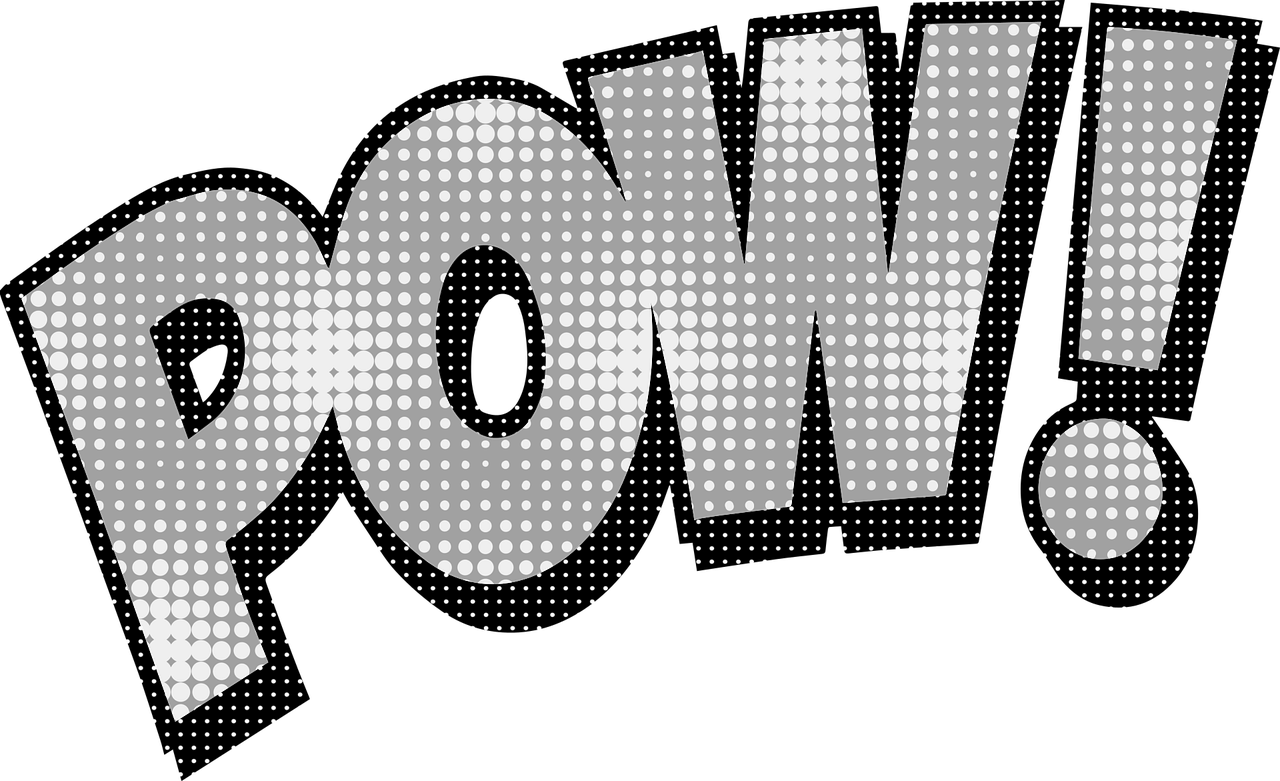

Rhetorician – my secret identity
Sometimes Professor Leah Ceccarelli likes to think of “rhetorician” as her secret identity. Why? Because sometimes the most effective rhetoric is the one that denies it is rhetoric at all. Ceccarelli visited Retorisk Arena at the University of Copenhagen September 16th and this is her take on the usefulness of rhetoric from that day.
by Leah Ceccarelli · Professor of Communication · University of Washington
October 20th 2021 · 9 minute reading time
When I was invited to visit the University of Copenhagen, I did a bit of “research”. Thinking I should learn something about Denmark before visiting the country for the first time, I immersed myself in Danish culture and politics by watching Borgen.
Watching a drama series on television might not be the best way to learn about a country’s political culture – but it was fun! Borgen aired in Denmark quite some time ago, so for you students who were watching cartoons back in 2010, rather than a serialized political drama, the story is about an idealistic woman, Birgitte Nyborg, who becomes prime minister in Denmark by organizing a coalition government with parties to her political right and left.
I got pretty excited in the third episode, when the prime minister hired a new spin doctor, identified as “Denmark’s youngest Associate Professor of Rhetoric.” The actor who plays this Associate Professor was 43 years old at the time, so not exactly a child prodigy, but I can overlook that detail because I’m thrilled to see someone from my discipline represented on television! Rhetoric is recognized and respected in Denmark! But no sooner did my heart soar at seeing a professor of rhetoric on a popular show, than a discordant note rang out. The “very nice, very impressive” CV of this “young” associate professor of rhetoric included degrees from Harvard and Princeton – two very fine universities, to be sure, but universities that don’t have programs in rhetoric.
Maybe that’s why, by the end of the episode, the new spin doctor shows a complete lack of rhetorical sensibility. He announces on a television news program that the readers of a popular tabloid run by the prime minister’s chief political rival are all “vision-less losers.” He dehumanizes them further by calling them the “absolute lowest common denominator” to which politicians pander. He then implies that critics of the prime minister should have their freedom of speech curtailed.
An actual Associate Professor of rhetoric would know better. In fact, it’s hard to imagine a more clumsy failure of ethos development. He abandons all pretense at eunoia (or good will toward the audience) and phronesis (or good sense) as he performs a display of elitism that’s sure to anger and offend the very people he should have been trying to persuade.
It’s possible that the screenwriters were being clever by inserting the Associate Professor’s questionable cv at the beginning of the episode to foreshadow this turn of events. But I doubt it. There’s no dénouement at the end exposing him as an academic fraud who lacks any real training in the rhetorical tradition. Instead, I fear the story being told in this episode is a more familiar one, in which the field of Rhetoric is represented in the public forum as the exact opposite of what it really is. Rather than a discipline devoted to observing, in any given case, the available means of persuasion, it’s characterized as an ivory tower anachronism, condescending and clueless, disconnected from practical affairs and lacking in common sense.
Scientists should not use rhetoric!
Recently, I encountered a similar narrative in a commentary essay published in Nature, the world’s leading multidisciplinary science journal. Since my academic specialty area is the rhetoric of science – that is, how scientists observe the available means of persuasion – I’m keenly interested in how my discipline is being represented in science journals. And I’m sorry to say that it isn’t pretty.
The image at the top of the Nature article is of Krusty the Clown, wearing a face mask incorrectly, below his nose, as he leers down at an elderly woman. The fact that this figure of an immoral, dangerous buffoon is meant to represent the field of rhetoric becomes clear early in the article as the authors begin their screed against our discipline. The caption under the picture reads “consider what information – in what format – would best support your audiences’ decision.” Normally, that would be taken as sound rhetorical advice, but in this article, where rhetoric is characterized as the exact opposite of what it really is, the clown stands for rhetoric as indecorous, similar to what we saw from the Associate Professor of Rhetoric-turned-spin-doctor on Borgen.
The authors of the Nature article explicitly reject our field when they warn that “rhetorical devices” are “traditional techniques” of communication that are dangerously ineffective when applied to science. In fact, they say, “researchers should not take up the reins of rhetoric.” Instead, scientists should adopt what the authors call “evidence communication,” a new field they’ve invented and set out with five simple rules.
Ironically, those rules are drawn from the very rhetorical tradition the authors dismiss. For example, one of their rules, to inoculate audiences against misinformation, is known to rhetoricians as procatalepsis, or anticipatory refutation. The fact that the authors of this Nature commentary rebrand this traditional technique as “prebunking” doesn’t change the fact that it’s a rhetorical device that they’re advising scientists to use in the very article where they insist that scientists shouldn’t use rhetoric.
I want to reassure you that things are not as bad as they seem.
These distortions of Rhetoric by people outside our discipline are troubling. If a fictional expert in rhetoric can be so lacking in rhetorical sensibility that he gets fired soon after taking a job as a spin doctor, and science communicators who explicitly reject rhetoric are actually teaching rhetoric under a different name, then it seems like something is askew in the Rhetorical Arena. Rhetoric continues to act as a powerful force in our civic world, but it’s getting a bad rap. Those who fail to follow the lessons of the discipline are labeled rhetoricians, and those who observe the available means of persuasion explicitly reject rhetoric.
I point to these examples not to alarm you, as scholars and students of the Section of Rhetoric. I don’t want you to rethink your academic career choice. Instead, I want to reassure you that things are not as bad as they seem. In fact, dumping on rhetoric has always been a commonplace of argument, used even by those who are most closely identified with the field. In the Gorgias, Plato dismissed rhetoric as a mere knack, on par with cookery or cosmetics. Cicero belittled “exponents of the science of rhetoric,” calling them “exceedingly foolish persons.” He insisted that because orators must spend their lives in the rough and tumble of public affairs, they don’t have time to delve too deeply into the esoteric theorizing of the Greeklings.
And yet even as these ancient thinkers rejected the discipline with one hand, they pulled it in with the other. A science of rhetoric is conceived in Plato’s Phaedrus and realized in the writings of his student, Aristotle. Cicero took what the Greeklings cataloged and used it not only in the forum, but in his writings on theory that would become the foundation of rhetorical pedagogy for centuries to come. What these thinkers realized when they superficially rejected rhetoric, even while embracing it at a deeper level, can be summed up in a maxim that holds true for many disciplines:“ars est celare artem,” or “it’s (true) art to conceal art.” To succeed as a rhetor, you have to make the execution of excellence seem natural, rather than planned, practiced, and performed. In other words, by pretending to reject rhetoric, these experts in the art of rhetoric are actually using rhetoric to make the most persuasive case to an audience.
Dr. Anthony Fauci the undercover rhetorician
A recent example of this is the public rhetoric of Dr. Anthony Fauci. As the Director of the National Institute of Allergy and Infectious Disease in the United States, Fauci was an authoritative face of science in the early days of the COVID-19 pandemic. His expert use of rhetoric, while denying that he was using the art at all, is a case study in the effective public communication of science.
Fauci embodied the ethos of a responsible scientist citizen, acting as a stabilizing force in a presidential administration that was careening off the rails because of its stubborn partisan refusal to trust experts. The way Fauci did this was to present himself a truth-teller, consistent, patient, and prudent, all characteristics lacking in President Trump. In interview after interview, Fauci represented himself as the sort of public servant who speaks truth to power, the voice of honesty regardless of the consequences to himself. He challenged reporters to find inconsistencies in his public pronouncements because he was so confident that they’d come back empty-handed. When pressed about the slow response of the president to the growing crisis, he acknowledged “when you’re dealing with the White House, sometimes you have to say things one, two, three, four times, and then it happens.”
Fauci offered himself as the honest adult in the room, expertly steering the ship of state while it’s undisciplined captain blustered on.
But Fauci insisted that he was persistent and would “keep pushing” against the intransigent president. When asked about one of Trump’s lies in a press briefing, Fauci acknowledged that he couldn’t “jump in front of the microphone and push him down. OK, he said it. Let’s try and get it corrected for next time.” By exuding integrity and common sense, Fauci offered himself as the honest adult in the room, expertly steering the ship of state while its undisciplined captain blustered on.
One way Fauci did this was by drawing on a rhetoric versus reality dissociation, contrasting the president’s outrageous style to Fauci’s own steady guidance of executive action. He pointed out that it was his expert advice to the president that resulted in the original shut down of non-essential businesses, the thirty-day extension of that shut-down, and the various ensuing travel bans. Trump might be saying outrageously dismissive things about Covid-19, Fauci admitted, but when you look at the reality of executive action as driven by Fauci’s expert advice, it’s clear that the threat is being taken seriously.
Let me remind you here that dissociation of concepts is a rhetorical strategy. While Fauci claimed that his advice was driving the reality of the administration’s response and it was safe to dismiss Trump’s rhetoric as mere superficial appearance, the truth of the matter is that Fauci was using rhetoric to make this point. And he did it with full knowledge of what he was doing.
When Fauci was the age of most of you students here, he was a Greek classics major at College of the Holy Cross, in Massachusetts, a “committed humanist” at an institution that does teach rhetoric to its students. An emeritus professor of rhetoric I know, Michael Halloran, went to the same college around the same time and he confirms that Fauci would have taken, at the very least, the sophomore rhetoric course from Professor Harry Bean, and most likely several other rhetoric courses as well. If you want a model of the kind of positive influence you can have in the world by studying in the Rhetoric Section, take a look at Fauci.
Rhetoric in times of crisis
This global pandemic has been a terrifying public health crisis, requiring not only scientific expertise to get it under control, but rhetorical expertise to persuade people to do the right thing. There’s another global crisis that we’re facing that requires a similar partnership between science and rhetoric, namely, the looming disaster of global climate change. As with COVID-19, scientific claims about the risks we face and the best way of mitigating those risks tend to get read through partisan filters, making it difficult for scientists to persuade those who need persuading. This creates an opportunity for scholars of rhetoric to help out.
Consider, for example, the Intergovernmental Panel on Climate Change (or IPCC) Assessment Reports. These are all rhetorically rich documents, but I want to focus on just one of them today, the 4th IPCC report. That one was especially effective at circumventing criticism by climate change denialists, at least partially because the authors designed it to conceal the fact that it was the rhetorical product of a deliberative process. Throughout the report, the authors calculate scientific certainty levels through complicated matrices that attribute consensus to scientific studies rather than to the people writing those studies, or the people reviewing those studies for the IPCC.
The authors also use visual rhetoric to transform their expert opinion on the adequacy of that evidence into data points on graphs. By displacing their deliberative consensus onto the scientific literature and using impressive charts that systematically record the certainty level of that literature, the authors of the IPCC report deployed a persuasive rhetoric that concealed its own rhetorical nature. In doing so they transformed ethos appeals into logos appeals and made it difficult for climate change denialists to dismiss their conclusions as the product of politics rather than science. Once again, ars est celare artem. The most effective rhetoric is the one that denies it’s rhetoric at all.
This field of study gives you a secret power that prepares you to help solve some of the most critical problems of our age
Now don’t get me wrong. I’m not saying that you should conceal your field of study or be embarrassed to be a rhetorician. Quite the reverse. A degree in rhetoric is more useful than ever in our post-truth, hyper-partisan, pandemic-prone, greenhouse-gas-polluted times. But when you encounter people who are dismissive of experts from our discipline, or who caution against taking up the reins of rhetoric, please keep in mind that the argument that one is not using rhetoric is itself a rhetorical argument. There are times when I like to think of “rhetorician” as my secret identity. Expertise in rhetoric can be discussed openly in some situations, such as when talking with other scholars of rhetoric.
But there are other times when the best way to observe the available means of persuasion is to pretend that you’re not using rhetoric at all. This field of study gives you a secret power that prepares you to help solve some of the most critical problems of our age. So go forth and learn rhetoric, and put what you learn to use outside the academy to make this world a better place. Communicators who can persuade citizens to do things like get vaccinated and cut carbon emissions are the heroes that we need right now. And if being a student of rhetoric is the secret identity that allows you to accomplish those things in a world that’s always been skeptical of rhetoric, well then, so be it. Ars est celare artem.


Forfatteren anbefaler:
Leah Ceccarelli: “The Polysemic Facepalm: Fauci as Rhetorical Savvy Scientist Citizen,” Philosophy & Rhetoric 53.3 (2020): 239-45.
Jean Goodwin, “Sophistical Refutations in the Climate Change Debates,” Journal of Argumentation in Context 8.1 (2019): 40-64.
Jeanne Fahnestock, “Rhetorical Citizenship and the Science of Science Communication,” Argumentation 34 (2020): 371-87.
Læs også

